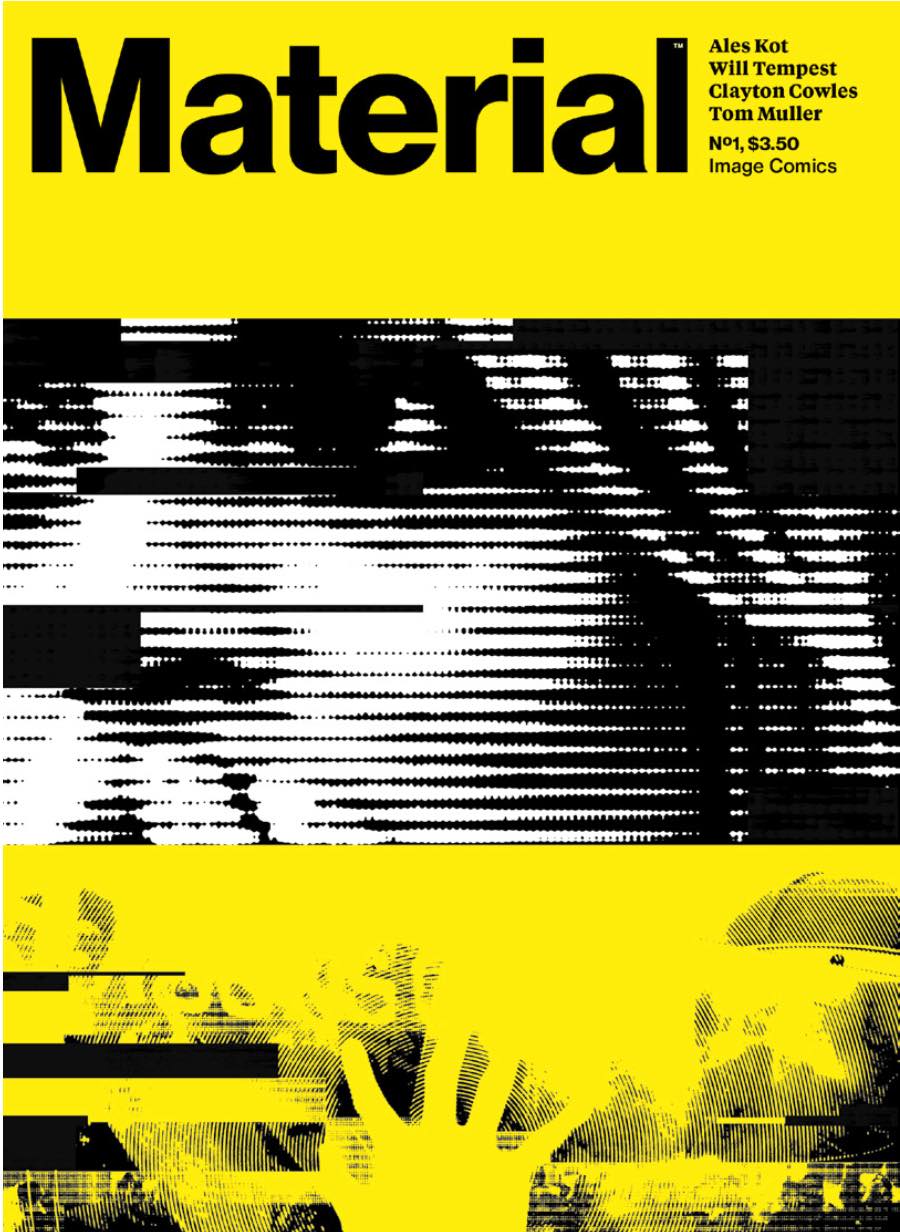An Interest In:
Web News this Week
- April 3, 2024
- April 2, 2024
- April 1, 2024
- March 31, 2024
- March 30, 2024
- March 29, 2024
- March 28, 2024
Why you should read "Material," by Ales Kot and Will Tempest

READ THE FIRST CHAPTER

Download the first chapter free of charge, complete with CONVULSIONS AMONG THE LILIES, an essay by Bijan Stephen.
(Don't forget the footnotes.)
Material, Volume 1 is available from Amazon and excellent bookstores and comic shops.
I know, I hate it too. It feels like a discursion from the main event, a distraction from the central text that interrupts the flow of the story and makes it difficult to pick up where you left off. Footnotes are dense, often maddeningly obscure, and frequently reference other information you need to seek out to understand the basics of whats going on.
And if I hadnt read the footnotes, I would never have found the Chicago Polices warehouse for incommunicado detentions and interrogations which, it turns out, features in Material.
My path to the warehouse started when one of my editors at The Guardian, the news organization where I work, asked me late last year to read a manuscript from a man detained at Guantanamo Bay detainee named Mohamedou Ould Slahi before we published excerpts from it. He wanted to see if I could find any non-obvious news lines to pursue. I found one in a footnote.
Slahi is among the most brutalized detainees in Guantanamo history. His captors stuffed ice into a jacket placed on his bare chest while
they punched and kicked him. In addition to the now-familiar noise bombardment and stress positions a euphemism for contorting someones body painfully they threatened to kill him and rape his mother. The footnote said that his interrogations leader was, in civilian life, a Chicago police detective. I wanted to know what someone capable of torture at Guantanamo did as a lawman at home.
I grew up in Brooklyn and primarily report on national security. I didnt know Chicago and its history. But as I found Chicagoans who accused this same detective of abusing them, Chicago activists, criminologists and lawyers taught me about the Windy Citys history of racialized policing. One of them, at the end of a two-hour coffee, offhandedly mentioned that the Chicago police even had an off-the-books warehouse where they held and questioned people without access to attorneys or public notice of their locations, effectively disappearing them. (more…)
Original Link: http://feeds.boingboing.net/~r/boingboing/iBag/~3/GYxXJPHx3gU/why-you-should-read-material.html


